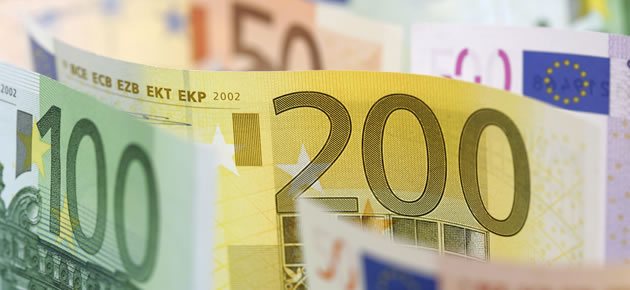Concerns that inflation woes will encourage the European Central Bank to introduce additional stimulus when it meets next week saw the Euro decline against most of its currency counterparts.
The common currency broadly softened as a report showed that consumer inflation came in below 1 per cent year-on-year in February.
According to one senior currency strategist; ‘Euro is still too strong at these levels, we’re looking to be short Euro-Dollar. It’s certainly possible we could see a dovish undertone from the ECB officials that’ll leave Euro bulls vulnerable.’
However, although the Euro was struggling against several of its major rivals it managed to advance on its Australian counterpart overnight.
With commodities like crude oil, copper and gold dipping, the ‘Aussie’ slipped against the Euro even as China’s conference board leading economic index for January showed an advance of 1.2 per cent following a gain of 0.8 per cent in December.
The Euro/Australian Dollar exchange rate was able to consolidate gains as figures confirmed that the German economy expanded by a seasonally adjusted 0.4 per cent in the fourth quarter, quarter-on-quarter, and was up 1.4 per cent on the year.
The data showed stronger-than-forecast capital/construction investment and a much larger-than-anticipated increase in German exports.
The nation’s exports rose by 2.6 per cent in 4Q rather than the previously estimated 1.7 per cent.
However, government spending unexpectedly stagnated in the final three months of 2013 and German domestic demand fell by 0.7 per cent instead of climbing 0.2 per cent.
Imports only increased by 0.6 per cent in the period, less than half the 1.3 per cent gain expected.
The figures follow yesterday’s reports showing an upbeat upswing in German business confidence and inspired this response from industry expert Natascha Gewaltig; ‘The German economy is actually in quite a good shape looking forward. That is also good news for the Euro area as a whole’.
Further EUR/AUD movement may occur in response to today’s influential US consumer confidence report, although volatility in the pairing is more likely to be inspired by Australian construction data and German consumer confidence figures.
Euro (EUR) Exchange Rates
[table width=”100%” colwidth=”50|50|50|50|50″ colalign=”left|left|left|left|left”]
Currency, ,Currency,Rate ,
Euro, ,US Dollar,1.3761,
,US Dollar,1.3761,
Euro, ,British Pound,0.8250,
,British Pound,0.8250,
Euro, ,Australian Dollar,1.5270,
,Australian Dollar,1.5270,
Euro, ,New Zealand Dollar,1.6593,
,New Zealand Dollar,1.6593,
Euro, ,Canadian Dollar,1.5235,
,Canadian Dollar,1.5235,
[/table]



